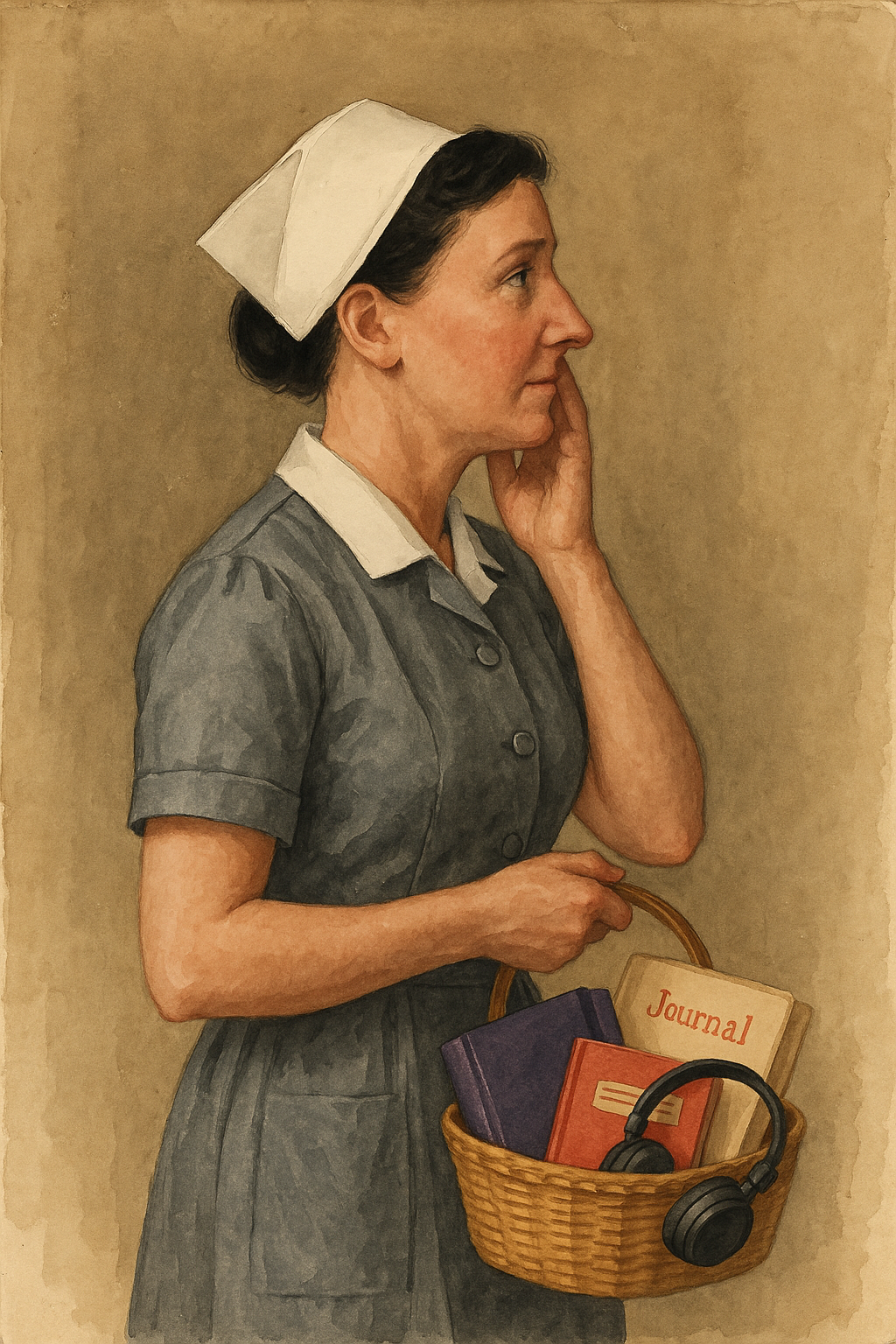A House, Not a Home
This piece touches a tender truth—painful to face, yet close to heart. May it help you find the light within, and connect with those—past and present—still searching for a way home.

I call it the place where people are sent to die—while still awake. I remember my mom volunteering at one of these places. Sometimes I would go with her and sit and wait—just like those who live there.
It was one of those places named after someone who gave them a lot of money, but my mom always called it the “Old Folks Home” because she thought of it as everyone’s home.
It didn’t feel like home to me. It didn’t even smell like a place I’d ever want to live. There was no color—as if life itself had been drained away. It felt like a warehouse for people that were lost, waiting anxiously for a final ride home to end their misery and pain.
Lately, I’ve been hearing more and more of these stories—each one a painful reminder of how easily we dehumanize the old, the frail, the ones too sick to stand up for themselves—let alone to vote.
At the end of a long week, these stories echo in my ears—like the emptiness and lost souls I met when I accompanied my mom in her “Gray Lady” volunteer uniform. It was always so dark there—despite the glaring fluorescent lights.
Those courageous ladies were like angels of light, making life just a little more bearable. Gently, they let the residents know it wouldn’t be too much longer before their train arrived. Everyone seemed to know this was their last stop.
Recently, I spoke with a dear woman who had lovingly cared for her husband at home for many years—until she simply could no longer continue. She herself had grown too frail and sick, and her husband, often not treating her in the way she deserved, was slipping quickly from complications of diabetes.
At first admitted to the hospital, he then was quickly shifted to the nursing home for rehabilitation—even though his infection was not under control. However, rehab dragged on longer than expected, and soon she was being pressed to fill out the financial paperwork for “long-term” care. That was just another way of saying: he would be left with nothing—and so would she.
Still, she went on faithfully, visiting him nearly every day—even though it was never easy for her.
One day, she noticed he hadn’t touched his scrambled eggs—the breakfast he had always loved at home, and she had always loved to fix for him. Curious, she took a bite. But the moment the eggs touched her tongue, she knew exactly why they were still sitting cold on his plate.
Later she called the person in charge and was cheerfully told, “Oh, I didn't realize your husband liked fresh eggs.” As I imagined how this woman—who had dedicated herself to her husband, her family, her community, and her country—must have felt, my own mouth dropped open in shock and dismay.
She told me, “Yeah, I bit my tongue. I could've let loose with a few choice words. Instead, I just said, ‘Yes, I think most people would prefer not to eat crap. I’ve had enough of that already.’”
Whenever I speak with her now, I make it a point to ask whether her husband is eating his scrambled eggs. Her response is always the same: “Hell yes. I think that woman in dietary got my point. As long as I’m alive—and my husband is here—he’ll be eating his fresh eggs. And believe me, I am keeping my eye on a few other things you might expect for someone living in this type of home.”
I tell her, “It's hard to believe that our most cherished elders are treated as less than human. I guess we just have to bring a bit of home to them—in whatever way we can.”
She likes that one—knowing that I am with her, not wearing egg on my face, not lost trying to find where “home” really is. She knows it’s still alive in her heart—and in mine. My mom taught me that we can stand tall. We don't need to run away.
She also taught me about the light. He’s still not “long-term” yet, and I’m holding on to the hope that he’ll make it home.
I guess I’m her Gray Lady now—helping her be there for her dear husband and children, so they always know they are home, no matter what house they live in. That, more than anything, is what matters most.
That’s always been our job—and yours too. I know my wife will be my Gray Lady when my time comes—and I will be hers. That’s the blessing we pass on to you—with this song. May we always remember “Our House”… and bring it home.
By the way, I just spoke to my patient to ask permission to share her story. She told me that her son and daughter-in-law spent the weekend cleaning their house from top to bottom.
Then she added, “They even rearranged some of the furniture in the living room. There’s so much light now. It’s beautiful!”
Joni Mitchell connects the thread again with Graham Nash—a thread that connects all of our hearts and brings us home.
Confidentiality note: All patient stories are composites and fictionalized to protect privacy and honor confidentiality. Similarities to your own situation are coincidental, yet intentional in reflecting the universality of our human experience.
Comments or questions? Email me at mcecilvt@aol.com. Feel free to share these words—and this blog—with anyone you hold close or long to be held.
Dr. Cecil is a licensed psychologist, certified AEDP supervisor, approved EMDR consultant, and senior CSRT consultant. He specializes in treating complex relational, developmental, and transgenerational trauma, bringing therapy to life through heartfelt stories and images of connection and healing that emerge from the light of invisibility.